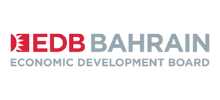About this research
Innovating through tech in the GCC is an Economist Intelligence Unit report, supported by the Bahrain Economic Development Board. The report examines how both local and international companies in the GCC are integrating advanced technologies to offer innovative products and services to the market.
This report combines extensive desk research, data analysis and insights from expert interviews. We conducted in-depth interviews with executives at small- and medium-sized enterprises as well as large, established companies. Interviewees explained the ways in which they are developing business solutions using advanced technologies such as artificial intelligence and blockchain. In addition, we interviewed industry experts for an overarching perspective of technology adoption in the region. The interviews were conducted in January and February 2020.
Our sincerest thanks go to the following participants (listed alphabetically) for their time and insights:
- Abdullah Asiri, CEO, Lucidya
- Yehia Badawy, co-founder, Rain
- Sahiqa Bennett, CEO and co-founder, Searchie
- Anthony Butler, CTO blockchain services, IBM
- Abhinav Chaudhary, co-founder and CEO of Fero.Ai
- Sean Dennis, CEO and co-founder, Seafood Souq
- Muhannad Ebwini, CEO, HyperPay
- Hussain Haji, co-founder and CEO, Inagrab
- Jad Hajj, partner, Strategy&
- Mustafa Hasan Marhama, co-founder, Inagrab – Dalooni
- Yusuf Sabadia, CEO, Averos
- Amjad Puliyali, founder, GetBaqala
Jessica Twentyman is the author of the report and Melanie Noronha is the editor
Executive summary
Companies in the six states of the Gulf Cooperation Council (GCC) are increasingly looking to deploy innovative technologies that will help them build new business models and deliver modern customer experiences. This is imperative for the region’s economies amid the coronavirus pandemic as well as in the context of their long-term ambitions to diversify away from oil and gas. Pandemic-related lockdowns and social distancing measures have increased the reliance on digital technologies—video conferencing for communicating with colleagues remotely, telehealth for remote diagnostics, digital banking for online payments and money transfers, e-commerce, among others. Wider adoption of advanced technologies can unleash a host of business opportunities across enterprise software solutions, financial services, consumer goods and retail, among others.
In this Economist Intelligence Unit report, we take a look at trends in technology deployment, the business opportunities emerging as a result and the hurdles companies continue to face as they integrate advanced technologies into core solutions.
Key findings of the report:
- Companies are increasingly incorporating innovative technologies into their core products and services, with artificial intelligence, the Internet of Things and blockchain topping the list of advanced technologies adopted.
- The growing young population in the region presents a significant opportunity for companies to provide the types of digital experiences that both consumers and future employees will increasingly expect and demand.
- Technology infrastructure challenges are melting away as more data centre space opens up in the region and telecoms operators scramble to introduce new 5G networks that will support more data-intensive products and services.
- Key challenges persist, including a regional digital skills shortage, a lack of economic integration between GCC member states that hampers regional expansion and increased competition from foreign multinationals with more experience in digital transformation. Companies must play an active role in educating clients on advanced technology solutions and use cases to drive greater adoption.





